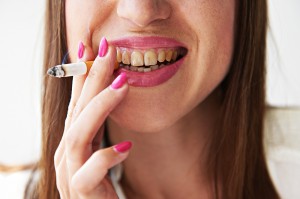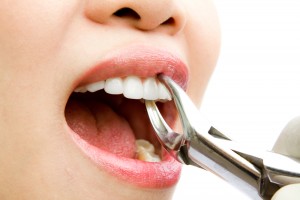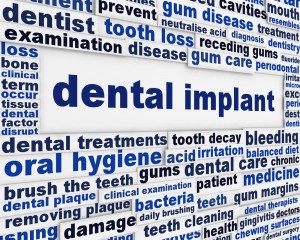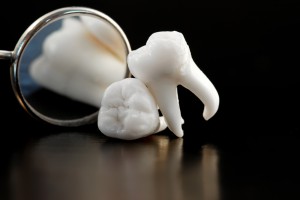
People who clench and grind their teeth throughout the day or while sleeping at night are typically completely unaware that they do so. However, this habit can be extremely damaging to one’s smile, wearing down enamel and slowly causing teeth to move out of alignment. While there are different causes for this condition that is medically known as bruxism, there are underlying causes for the condition in individual cases. Most people assume that teeth grinding is the result of stress. This factor can contribute to the situation, although, it is typically the result of an abnormal bite, missing teeth, or teeth that are not properly aligned.
Anyone who suspects that they may grind their teeth can look for several different indicators that will make them aware that they have developed this habit. In addition to consulting your dentist for signs of damage, people suffering from bruxism will typically experience dull headaches on a regular basis or consistently wake up with a sore jaw. Although grinding your teeth may not seem to be immediately harmful, the consequences of this habit over time can have a rather serious impact on your oral health.
Over time, grinding and clenching can loosen teeth in the gums. It can also cause fracturing or even the complete loss of an individual tooth. In the event that grinding wears down a tooth excessively, an individual may need to have crowns, implants, bridges, or dentures put in place in order to correct the problem. Severe cases that go unchecked can result in problems with the jaw that can eventually impact one’s appearance or alter your ability to hear due to the proximity of the ear canal. Continue reading →
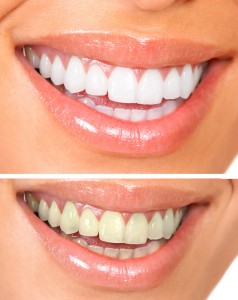
Have your pearly whites taken on a yellow tint? Are you concerned about this color on your teeth? You are not alone. Many Roseville residents want a bright smile, but their yellow teeth get in the way. Why do teeth turn yellow, and how can you prevent this?
Your teeth can turn from white to yellow for two main reasons, and the reasons are related. The first one is well-known: certain foods and drinks can directly stain your teeth. Unfortunately, the worst culprits are also acidic and can wear down the white enamel coating on your teeth.
Cola and other soft drinks, for example, are notorious for staining teeth. They are also highly acidic. In time, their acids can change the color of your teeth by destroying their protective outer layer. This less-common reason for yellow teeth is much more damaging to your dental health.
At its thickest point, tooth enamel is a natural shade of white. As it wears down, it develops translucent qualities that start to reveal the next tooth layer called dentin. This layer has a yellow tone that is darker than the enamel that covers it. The thinner the enamel becomes, the more yellow your teeth will look. Continue reading →


